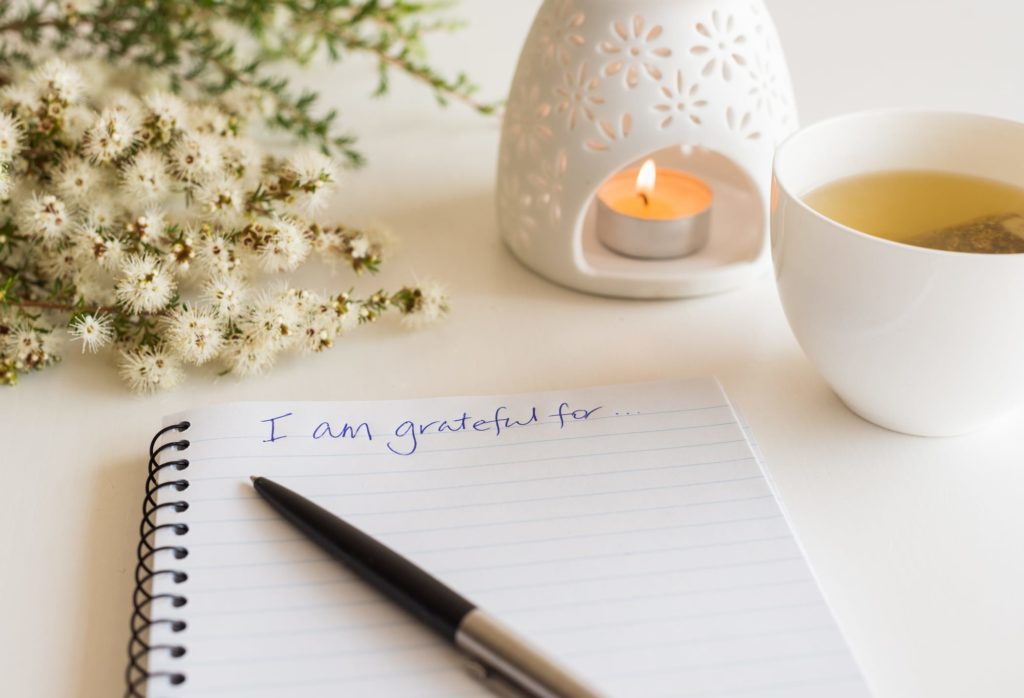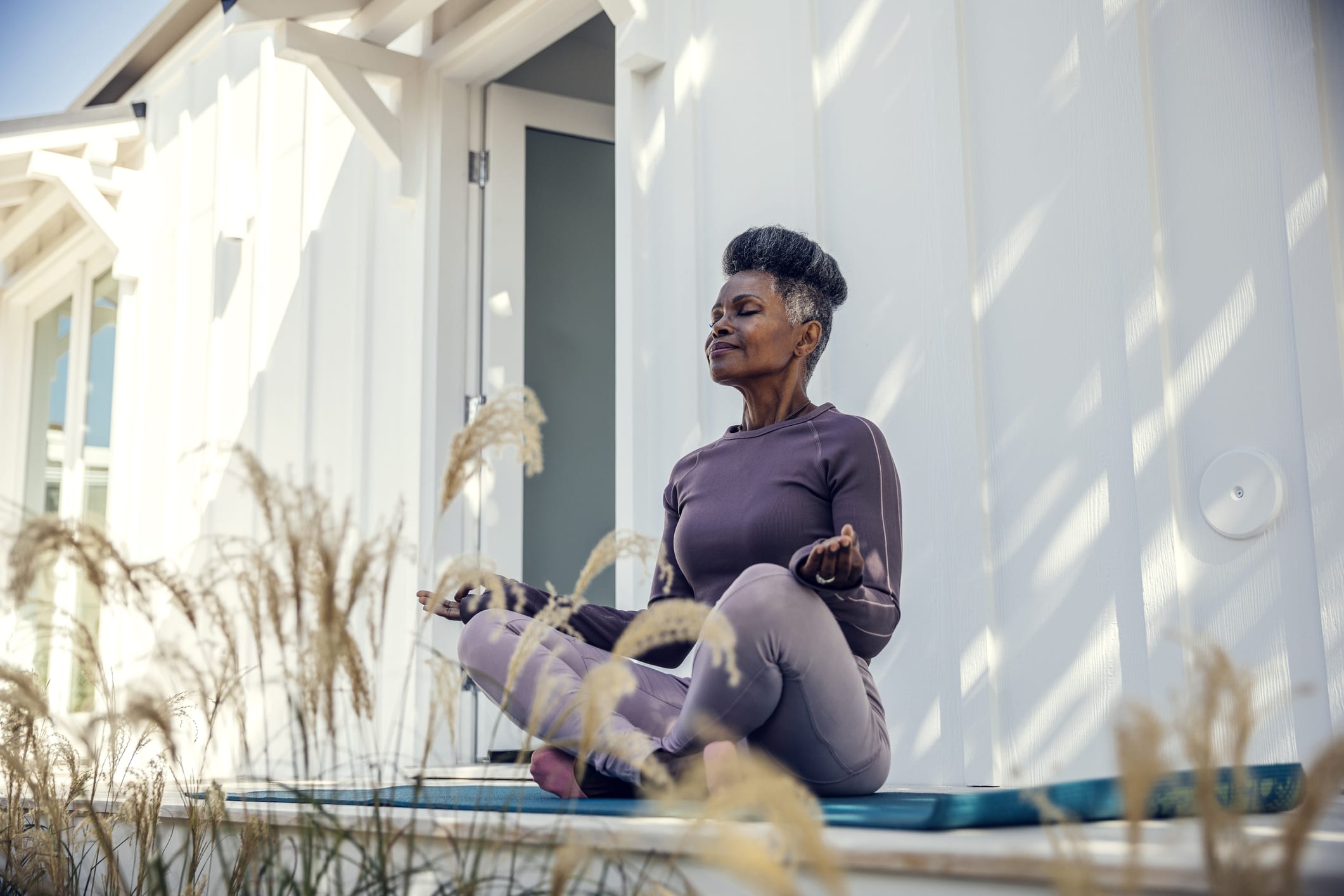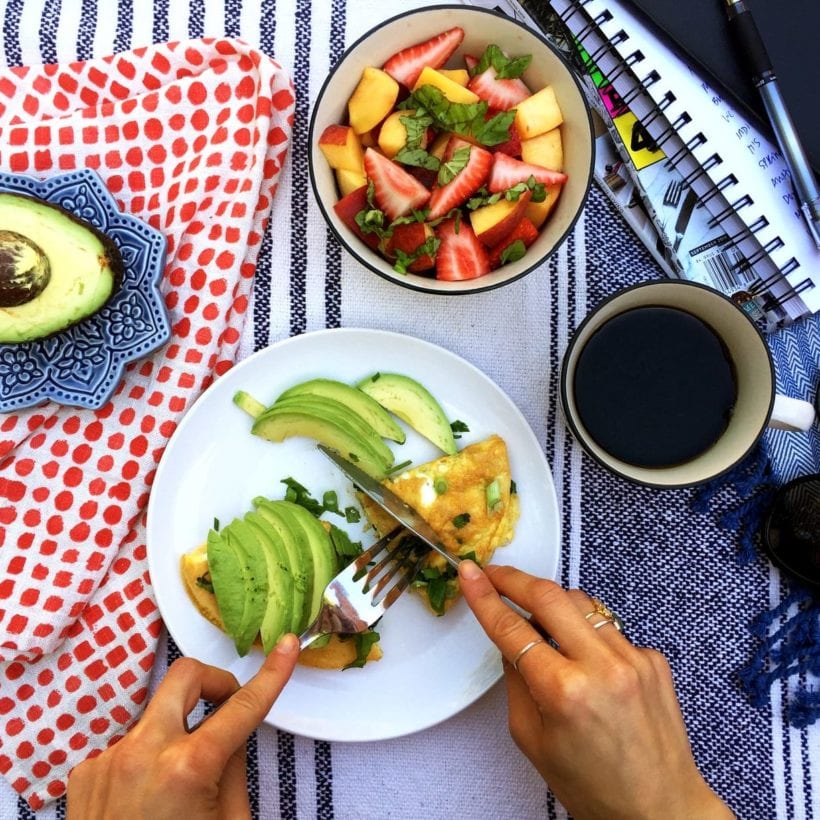Life, as it was pre-pandemic, is a distant, seemingly-impossible memory, workplaces and careers have been turned upside down, and families and friends have been separated for months to keep one another safe. If you ask psychologist, Dr. Kevin Gilliland, there has never been a more critical time to practice self-care. Throughout all of the sudden shifts and changes, it’s challenging to focus on what we need, but as Dr. Gilliland stresses, we have to be more knowledgeable about the things in our life that energize, inspire and nourish us. He says this includes physical activity, sleep, food, loving relationships, or really, anything you simply enjoy.
Here, we spoke with wellness experts about why making self-care goals matter — and their best recommendations for personal aspirations in 2021:
Why self-care goals matter
Your manager needs that presentation in an hour, your partner set up a virtual Zoom double-date for tonight, and you can’t stop thinking about that lingering text from your mom you haven’t responded to yet. Plus: you skipped lunch, and you’re starving. Many busy professionals feel as if there are never enough hours in the day, so dedicating time to ‘self-care’ can sometimes feel lazy or unproductive. However, investing in yourself is vital and always worth the calendar block, according to licensed marriage and family therapist Hanna Stensby.
Setting self-care goals creates accountability, allowing us to check back in with ourselves to see our progress.
First, setting self-care goals creates accountability, allowing us to check back in with ourselves to see our progress. This also provides structure, making it easier for you to stick to your commitment. And because we touch base frequently to see how we are tracking, Stensby says it pushes us to focus on self-reflection and be honest about how we feel, what makes us happy and where we might be struggling. Practice also allows us to see the ongoing benefits of self-care. “Having a mindset shift from ‘I don’t have time to do self-care’ to ‘I am choosing to prioritize my self-care’ can be liberating,” she explains. “Self-reflection is the first step in changing habits and self-growth and helps you understand what activities you need to feel cared for.”
Lastly — and likely most convincing — if you don’t take care of yourself, you can’t offer your best self to those you love the most. As Stensby explains, taking care of yourself is the first step to showing up as the best version of yourself in your relationships and at work. “When you feel taken care of, you have energy, empathy, and creativity to apply to the activities you do,” she adds.
Here, specific, structured self-care goals that make a difference:
Create a morning routine
Many people lost their typical routine during the pandemic, as our commutes went from a short drive, walk or metro ride to a few steps from bed to at-home desk. This could have changed how you exercise, what you eat, and other parts of your morning. One easy self-care goal to create is taking back control of those early hours in the day. “Setting the tone in the morning has a huge impact on the rest of the day. One way to instill a new habit is by practicing consistently. By doing this first thing in the morning, you ensure that you accomplish it before life gets in the way,” she explains.

She recommends setting a daily intention to help your brain stay focused and positive. “When we take the time to set an intention, it helps our brains respond to daily stressors in a more productive way rather than moving through the day in reaction,” she adds.
Improve your sleep hygiene
Dr. Gilliland says sleep is power: not only does it strengthen our immune system, but it improves our mood. So if you aren’t getting the recommended seven to eight hours of nightly sleep from the Sleep Foundation, it’s time to start tracking your sleep hygiene to understand better how to rest easier. Dr. Gilliland recommends monitoring the typical time you go to bed when you get up and anything that happens in between those two choices. Do you wake up frequently to use the bathroom? Wake up when you toss-and-turn? Does your stomach growl out of hunger — or does your brain refuse to shut off? All of these can be helped by better wellness habits, he says. These include obvious ones, like taking a digital detox and eating clean, as well as other practices. Think: investing in a weighted blanket, writing in a gratitude journal, taking a yoga or meditation practice, and so on.
Replace fraudulent ‘self-care’ habits with real ones

Stensby says many times we engage in self-care activities that don’t actually leave us feeling restored. Think binge-watching television for three hours, indulging in a pint of ice cream that ultimately upsets our stomach, or online shopping, which doesn’t provide our bodies and brains with the release they crave. You can tell if something is fraudulent by thinking about how you feel right after finishing the activity. Do you feel energized or relaxed? Or do you feel about the same, or potentially, even more tired?
When you get the urge to engage in one of those rituals, replace it with something you have identified improves your overall state of being instead. How do you know what works for you? Explore! Stensby recommends spending time evaluating what really, truly leaves you feeling relaxed, refreshed and energized — not numb. “Fraudulent self-care habits work to relieve stress or difficult emotions while you are engaged in the activity, but as soon as it’s over the difficult feelings or stress return, sometimes even stronger,” she explains.
Delete the negativity out of your life
Chances are high you have negativity lurking next to you right this very moment. In your phone, you probably saved in some folder or app that you visited in weak times. Maybe it’s a photo of an ex-lover, a text conversation of something kind they once said, or another reminder of a relationship gone sour. It could be a photo of you when you were at your ‘goal weight,’ and you thought you looked your best. Consider this your self-care goal: delete all of that right now.
According to wellness expert and chief product officer for Truth Map, Holly Nelson, it’s only causing you to live in the past and feel sad. “Your phone gives your mind the way to wander through both the physical world and your meaningful world simultaneously. Therefore, old text messages and pictures that represent past traumas, relationships, and pains that live within your phone are given real physical world space, along with the meaningful place they have already taken up in your head. That’s doubling down on your mind’s strength in clinging to these things instead of letting them go,” she explains.
Commit to taking care of your gut
 You’ve likely heard — and read all about — the importance of our gut and digestion. But have you taken the time to identify your own issues? Wellness expert and host of the Spiritually Hungry podcast, Monica Berg, says the gut is considered the mini-brain of our enteric nervous system (ENS), which, like our mind, uses neurons to send information to other cells in our bodies. What does this mean? As Berg explains in a blog post, your ENS is completely responsive to what you are eating. This means it will tell your brain when you’re feeling heightened negative emotions, like depression or stress. Then, we are pre dispositioned to feel those things when we chow down on certain foods.
You’ve likely heard — and read all about — the importance of our gut and digestion. But have you taken the time to identify your own issues? Wellness expert and host of the Spiritually Hungry podcast, Monica Berg, says the gut is considered the mini-brain of our enteric nervous system (ENS), which, like our mind, uses neurons to send information to other cells in our bodies. What does this mean? As Berg explains in a blog post, your ENS is completely responsive to what you are eating. This means it will tell your brain when you’re feeling heightened negative emotions, like depression or stress. Then, we are pre dispositioned to feel those things when we chow down on certain foods.
In fact, our brain and our gut bacteria have been communicating since our infancy, influencing our responses to fear, memory, and anxiety, she adds. One important self-care goal for 2021 could be to track how you feel after you eat certain foods and your motivations for eating different meals. This could help you identify mindless snacking or sensitivities, and help you to make better, more mindful, food choices. One smart app to check out is Noom, which is meant to help us figure out the psychology behind why we eat what we eat, how it impacts us, and how to cure poor habits influenced by our psyche.
Track your hydration
Do you go straight from coffee to wine? Or hot tea, iced tea, and a spritzer? Being home 24/7 and without a water cooler or colleague to keep you accountable can make it tricky to get enough H20. However, water is essential for our digestion and immune system, and for our overall health, says Emily Hochman, certified health coach and the founder of Wellory. As a self-care goal, download a hydration tracker to measure how much you’re slurping down daily.
We only recommend products we have independently researched, tested, and loved. If you purchase a product found through our links, Sunday Edit may earn an affiliate commission.







